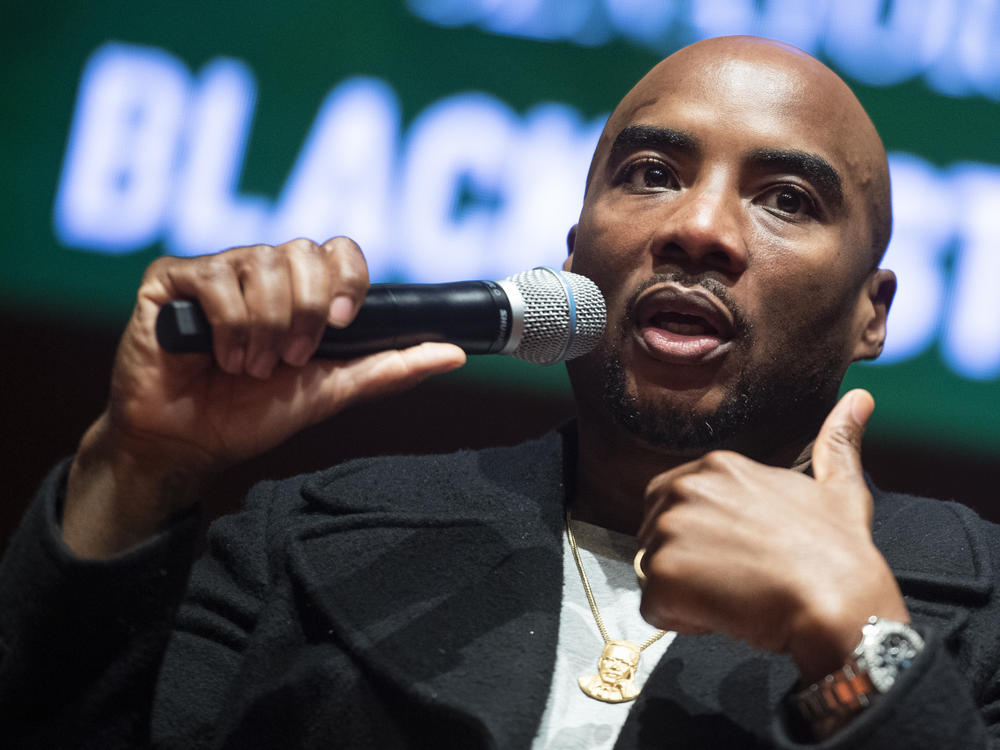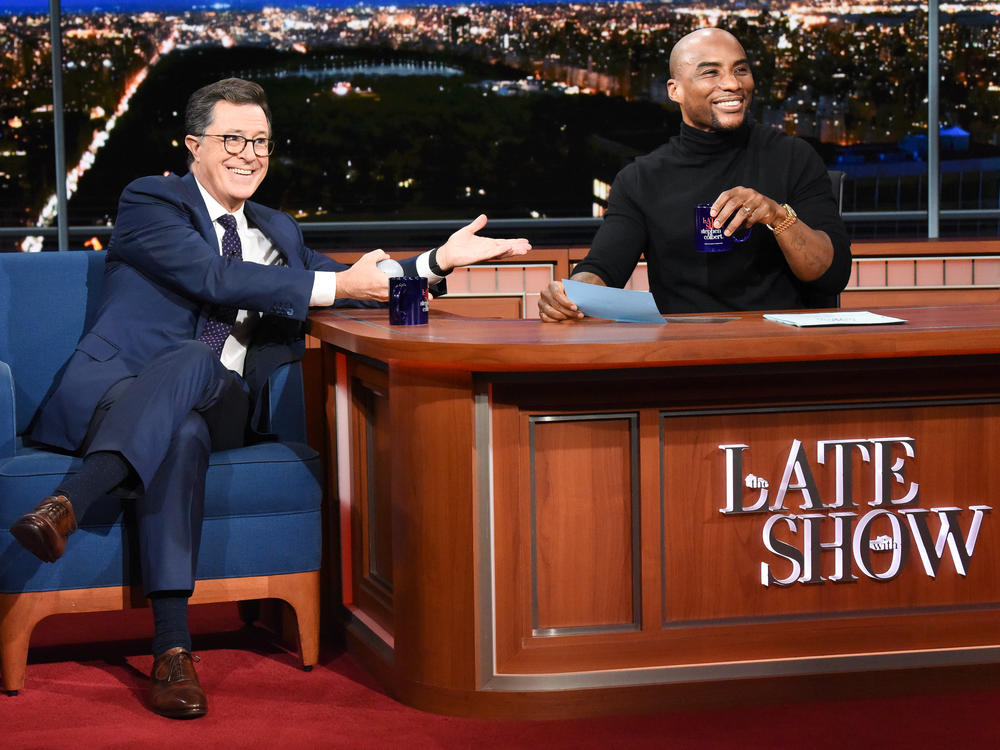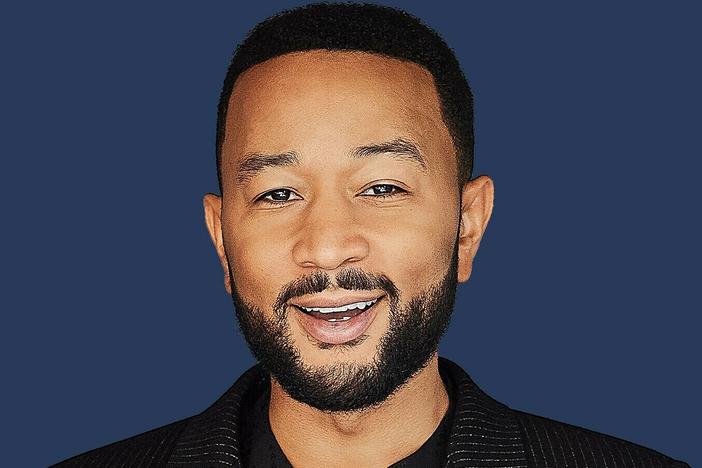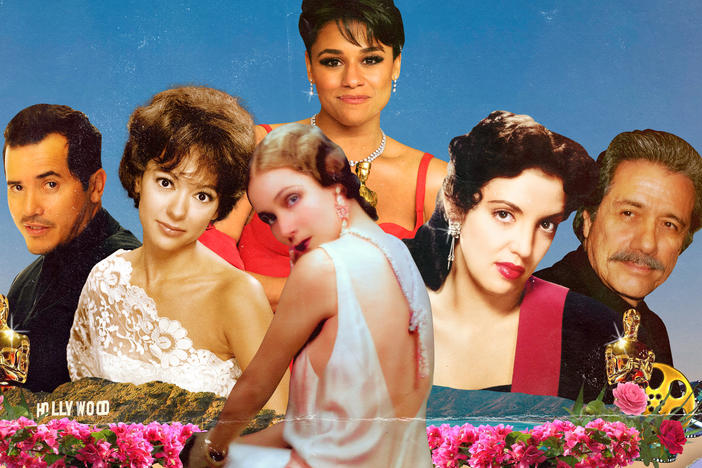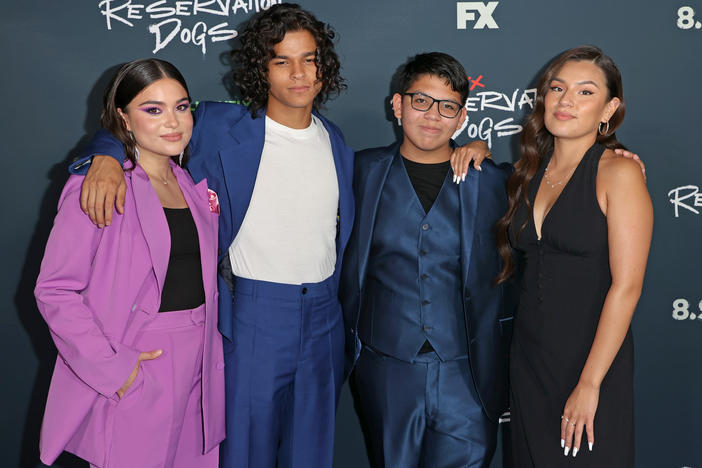Section Branding
Header Content
Radio Star Charlamagne Tha God Seeks TV Success On Comedy Central
Primary Content
This is an odd thing to hear from a radio personality who once proudly called himself the "Prince of Pissing People Off."
But Charlamagne tha God – also known as Lenard "Charlamagne" McKelvey – says he's a bit mellower now. The reason? He's wary that his button-pushing image is becoming a guilded straitjacket, pushing him into behaving in ways a 43-year-old father and husband maybe shouldn't be acting, anymore.
"I've been doing radio for 23 years, and I tell these [younger personalities], 'Don't get caught up in being a caricature of yourself,'" he says. "You start seeing those kind of write ups like, 'Oh he's the hip hop Howard Stern' ... so [you think] 'Damn... should I give them more of that?' ... It's easy to get caught up in a character when you see it's working."
Charlamagne and his co-hosts, DJ Envy and Angela Yee, gained fame on the nationally syndicated hip hop radio show The Breakfast Club. In particular, Charlamagne developed a reputation for confrontation, once asking rapper Tekashi69 if he was a registered sex offender and calling Drake a "pretty albino girl."
When politicians came on the radio show seeking to reach Black listeners, he had a moment with then-candidate Joe Biden, who declared, "If you have a problem figuring out whether you're for me or Trump, then you ain't Black."
That quote sparked a lot of criticism of Biden, but it helped establish Charlamagne as an interviewer who could get past politicians' talking points.
On his new Comedy Central show, Tha God's Honest Truth With Lenard "Charlamagne" McKelvey, the radio star promises a weekly program offering an "unapologetically Black" look at a range of issues in politics and pop culture through in-depth interviews, sketch comedy and "social experiments." He won't give many details about what viewers will see, but promises it will cover a lot of ground.
"There's definitely two Americas ... and I don't know if that's being presented on television the way it needs to be," he says. "I'm just tackling what it is we are going through as Black people in this country, but also letting people know this affects us all as a whole."
He's getting help from some pretty accomplished executive producers, including The Boondocks creator Aaron McGruder and Stephen Colbert, who hosts a little late night show of his own over on CBS.
As Charlamagne notes, he's known Colbert for a while. They're both from South Carolina, and the radio star has appeared as a guest on Comedy Central's The Colbert Report and CBS' The Late Show, including both of Colbert's live election specials in 2016 and 2020.
Comedy Central — where Colbert built his career as a correspondent on The Daily Show and his own fake news show before heading over to CBS – is billing this as something of a homecoming.
But what exactly can a 57-year-old white guy do to help develop an unapologetically Black talk show?
Charlamagne laughs while saying Colbert weighs in on the show so much they may be "getting on each others' nerves." Then he tells a story about advice he got from Colbert early, on, when the radio star initially planned to develop Tha God's Honest Truth as a Daily Show-style news satire.
"[Colbert] told me, 'When I launched The Colbert Report, I was the millionth white man with a talk show. So, I had to do something [like playing a character] to cut through,'" Charlamagne says. "He said, 'You don't have to do that. People come to you for your opinions and your ideas, so all you have to do is just be.'"
There are a few non-white hosts already leading late night shows; Ziwe and Desus and Mero are on Showtime, Amber Ruffin is making waves on Peacock and Trevor Noah has made The Daily Show his own after taking over for Jon Stewart in 2015.
But at a time when the biggest late night shows on ABC, CBS and NBC are still led by an assortment of white men named Jimmy, James, Seth and, yes, Stephen, there might not be a better time for an audacious, unapologetically Black host ready for a wider platform.
"Black people ... we do see the world a lot differently ... we see America a lot differently," says Charlamagne. "Black people, we are forced to know about a little bit of everything just to survive in this country. Even things that don't pertain to us. I think that's going to play to my advantage."
Copyright 2021 NPR. To see more, visit https://www.npr.org.
Bottom Content

